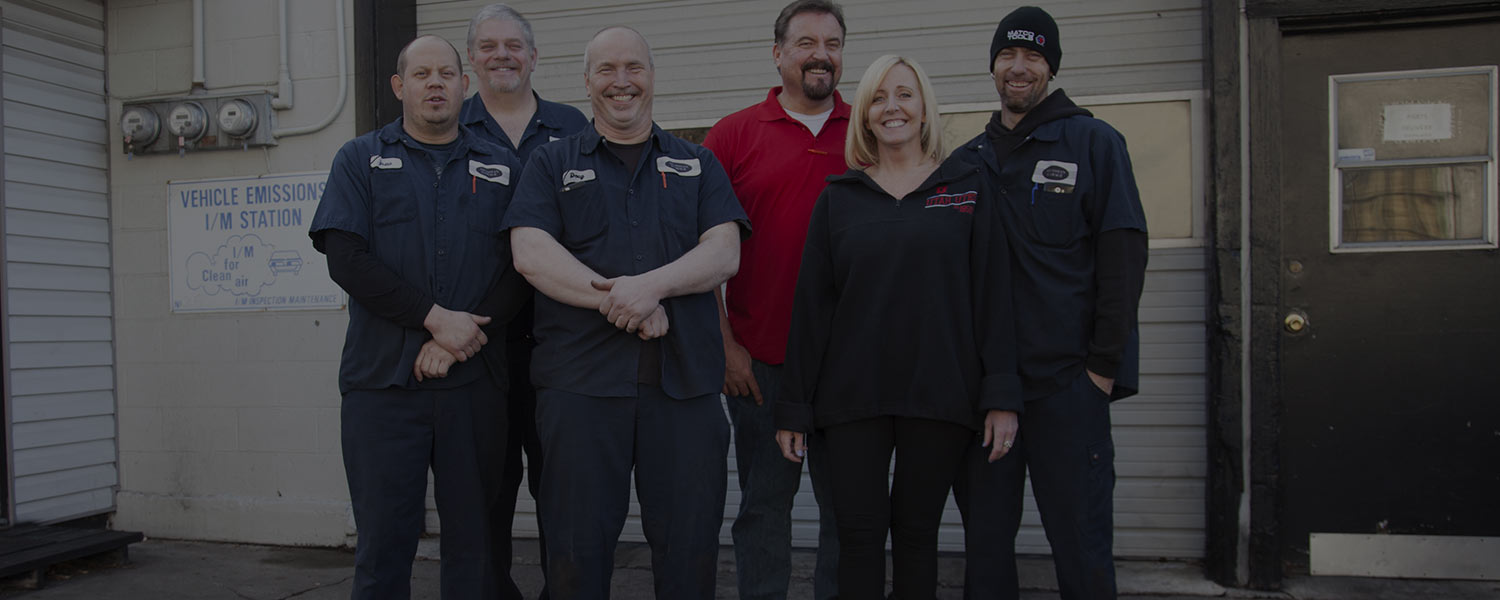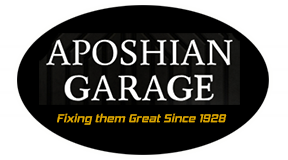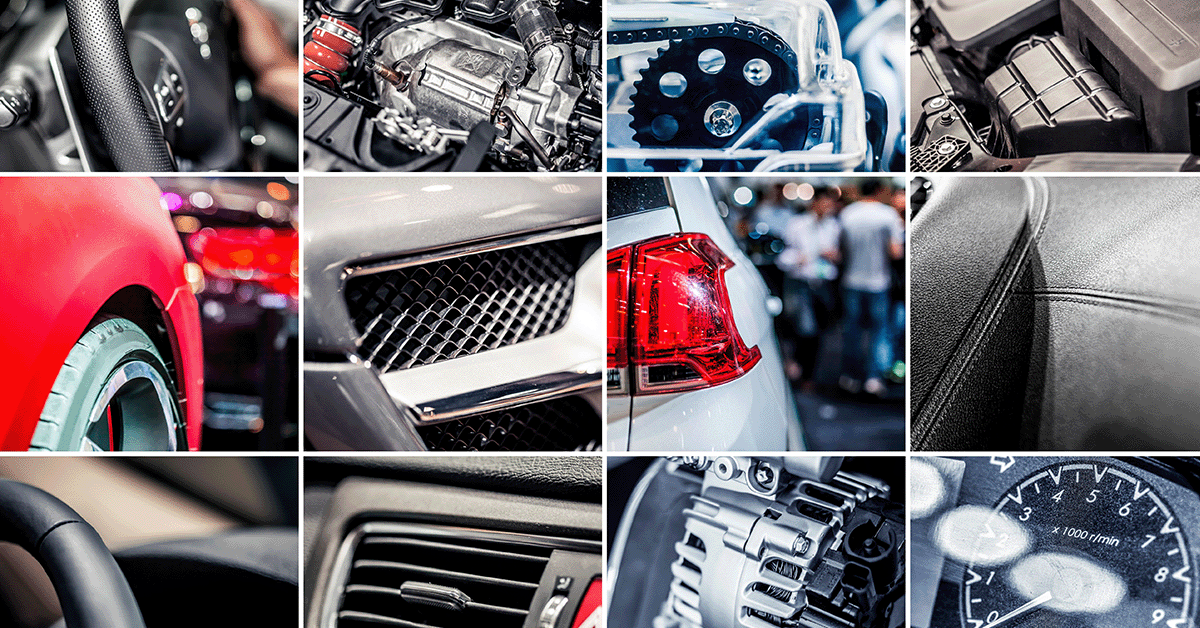Cars have become an indispensable part of our lives, but the world of automotive care is filled with myths and misconceptions. These myths can lead car owners down the wrong path, costing them time and money.
At Aposhian Garage, we're on a mission to bust some of the most common car care myths, replacing them with facts to help you make informed decisions about your vehicle's maintenance. Let's dive in!
Myth #1: Premium Fuel Equals Better Performance
Fact: Many drivers believe that using premium fuel will significantly boost their car's performance. However, in most cases, it's unnecessary. Premium fuel is designed for high-performance engines that require higher octane levels to prevent knocking or pinging. Using it in a regular car won't provide any noticeable benefits.
While it's true that premium fuel can offer advantages in specific situations, such as high-performance or turbocharged engines, most everyday vehicles run perfectly well on regular unleaded gasoline. Using premium fuel when it's not required is a waste of money.
Myth #2: Frequent Oil Changes Are Always Better
Fact: While regular oil changes are essential for your car's health, changing the oil too frequently can be wasteful and unnecessary. Most modern vehicles can go 5,000 to 7,500 miles between oil changes. Check your owner's manual for the manufacturer's recommended intervals.
Oil changes are vital for maintaining your engine's health and prolonging its life, but changing the oil too often can strain your wallet without delivering significant benefits. Adhering to your manufacturer's recommended oil change intervals strikes a balance between car care and cost-effectiveness.
Myth #3: Engine Idling Is Necessary to Warm Up
Fact: The practice of idling your car in the driveway to warm up the engine is outdated and wasteful. Modern engines are designed to warm up more efficiently while driving. Idling for extended periods can waste fuel and contribute to engine wear.
Idling your car for an extended period not only wastes fuel but also pollutes the environment unnecessarily. Instead, when you start your car, let it idle for about 30 seconds to a minute to allow the oil to circulate, and then start driving gently to help the engine warm up faster and more efficiently.
Myth #4: You Must Change All Four Tires at Once
Fact: You don't need to replace all four tires simultaneously unless they are all equally worn. It's essential to maintain consistency in terms of tire type (e.g., all-season, winter) and tread depth across the vehicle, but you can replace tires in pairs (front or rear) when needed.
Replacing tires in pairs (front or rear) instead of all four at once can be a cost-effective approach, especially if the remaining tires have significant tread life left. Ensure that the new tires match the type and size of the existing ones to maintain balanced handling and traction.
Myth #5: Premium Brand Parts Are Always Better
Fact: While premium brand parts can offer quality and reliability, aftermarket and OEM (Original Equipment Manufacturer) parts can be just as good for many repairs. Choosing the right part depends on the specific situation and the guidance of a trusted mechanic.
Premium brand parts are often more expensive, but they don't necessarily outperform aftermarket or OEM alternatives in every scenario. Trusted mechanics can recommend the most suitable parts based on your vehicle's needs and your budget, ensuring a reliable repair without unnecessary expenses.
Myth #6: More Tire Pressure Is Better
Fact: Overinflating your tires beyond the recommended pressure can lead to uneven tire wear, reduced traction, and a harsher ride. Always follow the manufacturer's tire pressure recommendations, which are typically found on a sticker inside the driver's door or in the owner's manual.
Maintaining the correct tire pressure is crucial for safety and performance. Overinflating tires can lead to a bumpy and uncomfortable ride, reduced tire contact with the road (reducing traction), and an increased risk of tire damage or blowouts.
Myth #7: Air Conditioning Wastes Fuel
Fact: While it's true that using the air conditioner can increase fuel consumption, driving with the windows down at high speeds can have a similar or more significant impact. In some cases, it's more fuel-efficient to use the A/C at highway speeds.
The impact of using air conditioning on fuel consumption depends on various factors, including the vehicle's aerodynamics and speed. At lower speeds or in stop-and-go traffic, using the A/C may have a noticeable effect on fuel efficiency. However, at highway speeds, open windows can create aerodynamic drag, increasing fuel consumption more than running the A/C.
Myth #8: Premium Oil Is Always Better
Fact: Using premium synthetic oil isn't necessary for all vehicles. It's essential to use the oil grade and type recommended in your owner's manual. Premium synthetic oil can provide advantages in high-performance or extreme conditions but isn't a universal requirement.
Your vehicle's manufacturer specifies the recommended oil type and grade to ensure optimal engine performance and longevity. While premium synthetic oils offer benefits like extended change intervals and improved engine protection, they are not essential for all engines. Using the right oil for your specific vehicle is key to proper maintenance.
Myth #9: DIY Repairs Always Save Money
Fact: While DIY repairs can save you money in some cases, they can lead to costly mistakes if you're not experienced. Some repairs require specialized tools and expertise, and attempting them without proper knowledge can result in more significant expenses.
DIY repairs can be a cost-effective way to maintain your vehicle, but it's essential to know your limitations. Simple tasks like changing the air filter or spark plugs are suitable for many DIYers, but more complex repairs, such as transmission or engine work, often require professional expertise to avoid costly errors.
Myth #10: More Washing Is Better
Fact: Frequent car washing is essential for preserving your vehicle's finish, but washing it excessively, especially with harsh chemicals, can damage the paint and clear coat over time. Stick to a regular washing schedule using mild car wash soap.
Keeping your car clean helps protect its finish from dirt, debris, and environmental contaminants. However, excessive washing, especially with abrasive materials or strong detergents, can strip away protective layers and cause premature paint and clear coat damage. Follow a regular washing schedule using gentle car wash products to maintain your vehicle's appearance.
Drive with Knowledge
Myths about car care can lead to unnecessary expenses and practices that do more harm than good. By separating fact from fiction, you can make informed decisions about maintaining your vehicle's performance and longevity. Remember to consult your owner's manual and seek advice from trusted mechanics when in doubt.
Are you ready to debunk car care myths and keep your vehicle in top shape? At Aposhian Garage, we believe in providing transparent and reliable automotive services.
When using Aposhian Garage, you have not only had your Subaru properly maintained, but you have also found your Subaru repair “home.”
We look forward to getting to know you and your vehicle!



